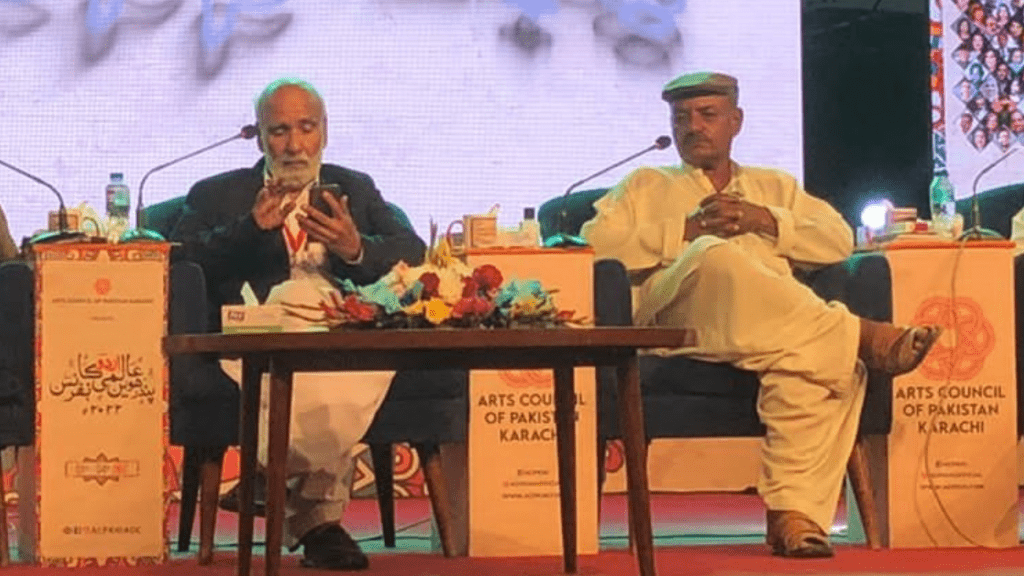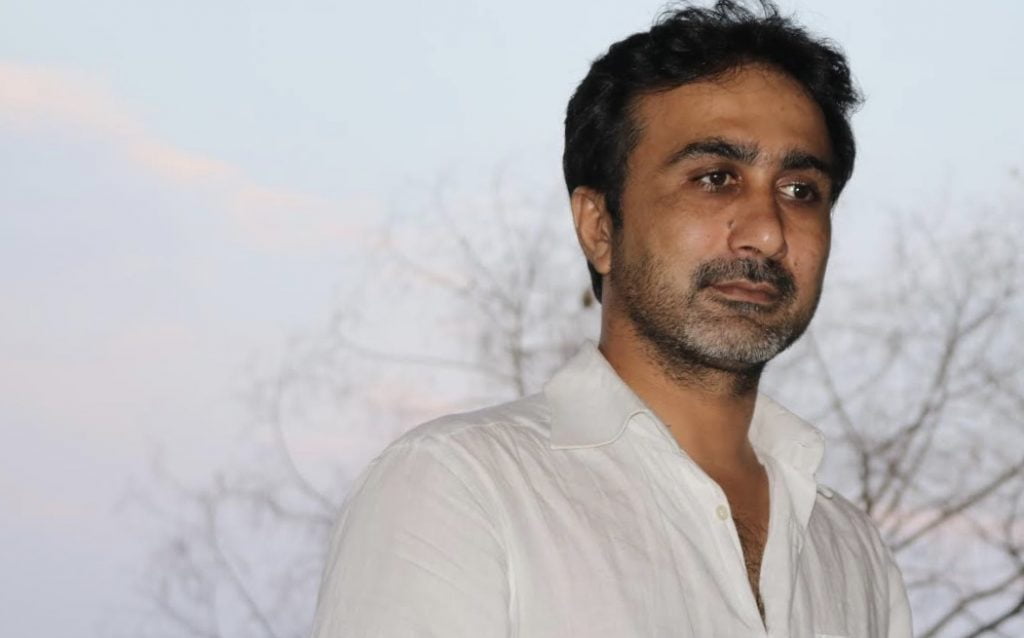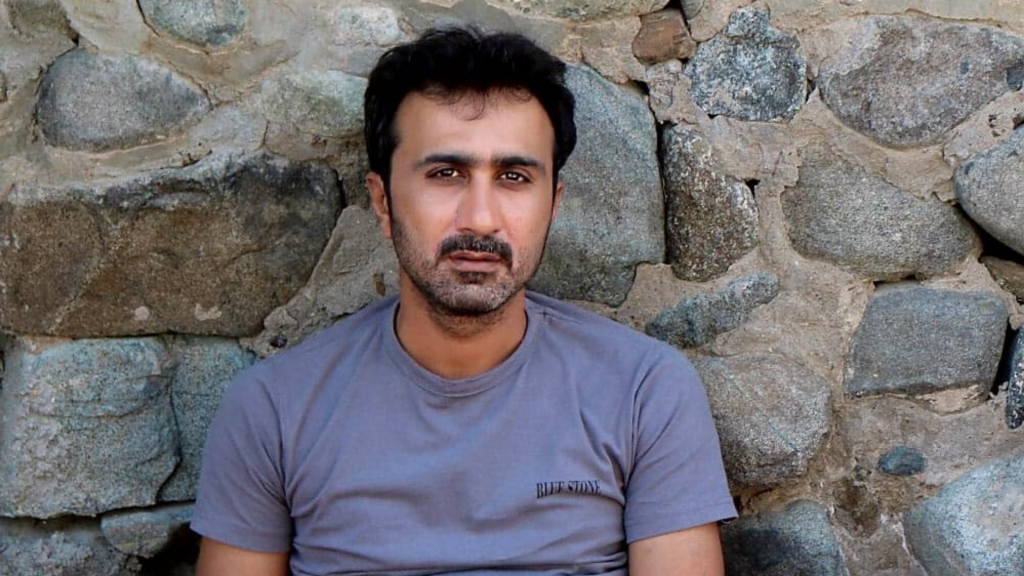Change has been a constant driving force in the human history and evolution. Sometimes this change is forced by nature and we submit to it and it is called adaption, and sometimes this change is driven by us to alter the status quo and it is called revolution. The latter is a fuzzy word or concept which is easy to use but quite complicated to grasp. However, for someone like me who is relentlessly skeptical, it is even more enigmatic to apprehend such a concept when applied in a local or a traditional context.
But, Qambar Jan, you introduced me to this concept of revolution in an emblematic manner. It wasn’t that I didn’t know the word revolution. It was just too abstract and elitist to me that I always used it for intellectual playfulness and adventure. Now, I do believe that there are certain concepts which can’t be explained but learned, and your life itself was that living example which helped me understand this confusingly unsettled concept of revolution in our context of Baloch and Balochistan. And it was at a time where trendy international intellectualism was a pompous hobby without any sort of relativism and contextualization among our disillusioned young intelligentsia.
These days when I think of revolution, your smiling face appears. That typical young revolutionary with a Baloch shawl wrapped around your nick or resting on your thin shoulders. Your soft voice and big glittering eyes whisper to me indirectly that I as your friend was dead wrong in my theoretical abstractions. And then the memories let the bells ring in my ears: life is concrete, suffering is concrete, ideas are concrete, injustices are concrete, poverty is concrete, discrimination is concrete, disrespect is concrete, denial is concrete, acceptance is concrete, love is concrete, hate is concrete, being indifferent is concrete, being silent is concrete and then all of these concrete forces compel us to come to the terms with this that revolution is in its essence concrete.
It doesn’t matter much whether one is passive or active, one can’t avoid change because human life is a political struggle and for the oppressed people it is only the revolution which give an oppressed and humiliated group its humanity and dignity back. A slave isn’t a complete human.
Wait a second. Isn’t it like that we are lost in the mist of time and sometimes some people come by and show us the way forward? Being an idealist, an uncompromising internationalist and a utopian romantic were the prism through which I always wanted to see the world and I still do somehow. But now the trouble is that every time I find myself face to face with the reality, I fall like a timeworn wall into the ground and in my ruins I find your voice. And then your face appears. Those glittering big eyes and the bells ring in my ears by reminding me that life is concrete, things are concrete. Sometimes it is as if you whisper in my ears that life is like a concrete bullet and if you deny it, it kills you.
My heart does bleed when I think of you. Too often I wonder that how would it have been if you were alive and we could have met in a gothic cafe in a corner of a city in exile and talk about life, revolution and about the people who you always called yours. What would’ve been your response when I would’ve told you that there is no yours or theirs problem, but problems are just ours. Now I’m pretty sure what would have been your response in a soft tune. “We live in a world which is divided into nation-states. In this wilderness you are nobody without representation and in this international tug of war nobody cares for you if you are not capable enough to make yourself counted.” Trust me, today, I wouldn’t hesitate much in realizing that you are right.
I am quite sure that I would have come up with the arguments about future, scientific discoveries, historical trends which may possibly make it impossible for us to think in secluded, tribal, and protectionist manner. I would have added in my robust style that these artificial lines which have sliced our only home, the planet earth, into artificial lines are not going to last forever.
You always told me or I guess you could have told me: “International trends are important and scientific discoveries should be applauded and unity in an international scale should be welcomed, but I cannot afford to be an internationalist when my villages are getting burnt in the broad daylight while the world is a silent spectator. I cannot fight for climate change on behalf of the humanity in order for us to avoid a future disaster for a world in which my brothers and sisters die daily at the hands of a system where I am treated worse than an animal. I don’t have the luxury to think thousands of years ahead when I cannot truly predict whether I live in a month or two ahead, not because of a natural death, but at the hands of a state with its soldiers and so called death squads.”
And then I’m pretty convinced that your answer would again have begun with the reference of your own people: “What about the poor Baloch of Balochistan who die of curable diseases because they have been denied a hospital, a Baloch child might never be able to understand the complexities of life and get a job in future because he or she has been denied a school. A Baloch girl would never be a free individual because she has been denied an education which might equip her to challenge these cultural and religious norms from within and ask for her rights.”
And you could have come up with far more gruesome examples of discrimination, cultural genocide, extra-judicial killings, torture, inhuman treatment, poverty, corruption, favoritism, nepotism, religious extremism and all of these systematically induced brutalities by a state against the Baloch while the so-called world and international community watched silently. Without shying away, I would have been silenced for few seconds and believe me I have loved it every time that you proved me wrong. These days I am just little more nostalgic to it.
Though I am an idealist, I guess, my questions have been somewhat of a practical nature. I remember asking you and would have asked you once again today that how you are going to bring the change or the revolution which you dreamed of in practice. It is not disputed that we have been a persecuted, victimized and discriminated nation without a state for centuries. But as Erik Hoffer Said once: “We used to think that revolutions are the cause of change. Actually, it is the other way around: change prepares the ground for revolution.”
I do have the same questions today. Should we wait for the revolution to come out of nowhere and change everything like a miracle or should we prepare the ground for it. Do we have the intellectual courage to challenge the conservative norms in our culture? Be those of purely cultural nature or of religious. Why out of 100 men in a demonstration, there is hardly a single woman. Why the baloch politics is either cultic or tribal in nature? Why our political relations and alliances are based either on friendship or family and tribal bonds and why not on truly ideological ground and organizational principles?
I know, my dearest, these questions could make you sad, but progress isn’t possible without addressing them. I am not sure whether we survive or not as a nation with a land where we would still be in a majority anymore or not since imperial powers are pouring in billions of dollars to use our native land as their economic, political and military hub. The unfortunate fact is that our oppressors are the most brutal and least civilized people on this planet. Can the Baloch survive by migrating? It makes me think of the Jews who were the most intelligent and creative people and yet they found no refuge anywhere in the world and were compelled to return back to Israel after two thousand years of wandering and dispersion in every nook and corner of our globe.
Let me guess your response and be patient to hear it: “One of the biggest threats which is facing our nation today is a demographic one. Once we are turned into a minority in our own land, we cannot undo it. We should guard our territories and tell the world that like the red-Indians and aborigines of Australia we are the native of the land and our survival is in danger. We should use all the means to resist our demographic genocide. It is time for us to be extremely careful with our national narrative. We are not foreigner, invaders or nomads from the Black Sea or Halb or anywhere else. We are the native of this soil. There were few migrations but all of them integrated into the host Baloch community of the Baloch soil. And today all of those who share the same culture or our bilingual heritage or a genuine sense of belonging and loyalty to the historic Baloch land is a Baloch. We should not suffer from an inferiority complex as a nation by connecting our heritage to invaders or other powerful nations. We have our own unique history.”
“To your question regarding the cultic and tribal attitudes in our politics, I would just add as I have repeatedly said that politics should be ideological and based on principles and not on personal favors and relations: be those friendship or tribal bonds. And on the question of change I would say that as an oppressed and lagged-behind nation it isn’t possible to do the things which a state can do because we don’t have many resources at our disposable. But of course we should do whatever we can as a nation. The writers should write, the workers should work, the teachers should teach but all of us should keep in mind this very fact that the only way is the way forward and we are all in the same boat as a nation. The Baloch should act as a community with love and acceptance from within and should be united against the oppressors. We should keep in mind the cultural sensitivities of our people, but we should never ever give up on our hopes of modernization and progress towards equality and the golden principles of human dignity and freedom as individuals.”
After hearing you speak with passion and an intellectual integrity, there would have always been too little to disagree. You have always been charismatic, sharp, and appealing.
At the end, Qambar jan, I would like to add, without your response or presumed consent, that I am deeply saddened to inform that the fellow comrades of liberty killed your father after your martyrdom. I cannot guess what would have been your response if you were alive and that’s why I am very cautious to speculate on it. I remember you saying that a thug can hold a gun in his hands and so do a revolutionary but what distinguishes between a revolutionary and a thug is the intention. A gun and pen at the hands of revolutionary are always guided by an ideology as compared to a thug whose gun and pen are guided by his narrow self-interests and imprudent calculations.
Anyway, there is very thin line in being a fanatic and a revolutionary, in being a nationalist and a racist or a chauvinist. One got to be extremely careful to not lose the moral legitimacy because once one is considered as brutal, as negligent, and as irresponsible as the oppressor then it would be hard to distinguish between the two.
Mature and meaningful revolutions will not happen overnight, one got to be prepared to struggle for generations to come, because only an authentic revolution could guarantee the promised freedom and socio-economic prosperity to every individual of the nation. Otherwise, it would be just a question of changing masters with new oppressors, tyrants and dictators as we witnessed with the decolonization after the Second World War in Africa, Asia and South America.
When our shed blood
In the gallows
Blossom like a flower.
When the sound of bullets
Turn into a melody.
When the conscious
Of our people
Would be indomitable.
When the oppressed
Triumph at the end.
I want the oppressor
To be humiliated.
I want the oppressor
To be ashamed.
As a friend and relative of Qambar Chakar, all of this is nothing more than my closest guesses about what Qambar would have said about revolution and Baloch politics today. My speculations are based on my lengthy discussions with Qambar Chakar before he was kidnapped and killed.
Yaseen Ghani studied Political Science from the University of Balochistan. He is also interested in philosophy.



